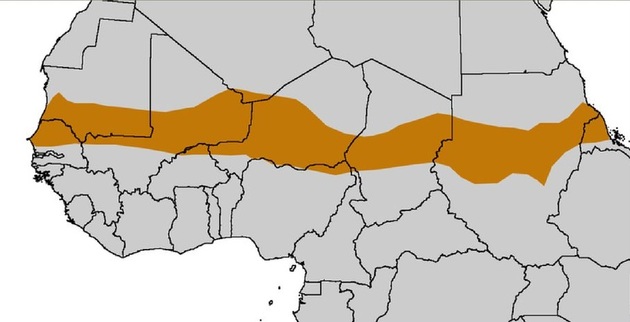Another Western army is leaving a fragile, landlocked region. But whereas the United States has pulled its troops out of one country, Afghanistan, France is walking away from five, argues Faisal Al Yafai in his article Euractiv. To surprisingly little fanfare, France has announced it is ending Operation Barkhane, its almost decade-long military intervention in the Sahel.
France has had troops in the Sahel, a belt of countries stretching along the edge of the Sahara, for over eight years. What started as an attempt to stop Mali being overrun by jihadis has morphed into a military operation spread across five countries, with more than 5,000 French troops. Ostensibly, the French are there to stop militant groups fighting a long-running, low-level insurgency across the region, one that has claimed thousands of lives and displaced two million people. But in reality, French troops have functioned as the “personal army” of Sahel governments.
The intervention is unpopular, both in the region, where French involvement is resented as a colonial hangover, and at home, where French casualties have extracted a political cost. Emmanuel Macron himself seemed to understand that reality when he said in June that France could not “substitute itself forever for the states of the region.”
In some ways, making the decision to leave was the easy part. France now faces the same dilemma the US did in Afghanistan: how to remove troops from the country without the swift collapse of the governments they had spent years guarding.
France originally tried to win the war by force, seeking to replicate the 2007 US “surge” strategy in Iraq. Last year, it sent an additional 600 troops to the region, hoping to clear a path that would allow local forces to take control. There were some bright spots – Al Qaeda’s chief in North Africa was killed – but the price was bloody. Last year was the single worst for civilian casualties since France’s entry in 2013; nearly 7,000 civilians were killed.
Now, France is looking for a way out, and is eyeing America’s Afghan strategy of getting allies to do most of the work in protecting the government from outside attacks. A new Takuba task force will replace Operation Barkhane; it will be made up of 600 troops, half of whom will come from European Union countries.
It is a risky strategy, both for the Sahel and for Paris. Macron hopes to remove the Sahel intervention as a source of criticism ahead of next year’s French elections. But how a contingent of hundreds is meant to achieve what thousands of troops could not, has not been explained.
There is, moreover, the public mood to consider. The largest non-French contingents in Takuba are Swedish, Estonian and Czech soldiers; all from countries that have little link to the Sahel and whose publics will be very sensitive to casualties. The Swedish parliament has only approved the deployment until the end of this year.
Without French troops, the Sahel might resemble another Western war: this time, Libya, an invasion that ended with foreign influence flooding in.
That already appears to be the case, with the familiar figure of Russia waiting in the wings to step in and protect Sahel governments from militants. The past year has seen two major events in the region – and in both cases, there are reports of Russian involvement.
The first, in August last year, was the military overthrow of Mali’s president, Ibrahim Boubacar Keita, mid-way through his second five-year term in office. The second was the sudden death of Chad’s president, Idriss Déby, who had been in power for three decades. Chad is the headquarters of Operation Barkhane and Macron was the only Western head of state to attend his funeral – which was held even as the rebel soldiers who had carried out the attack that killed Déby were threatening to march on the capital.
Taken together, the net result is that two long-time French allies are no longer in power, and two formerly stable governments are now in flux. Macron, who is sensitive to the criticism that France is more comfortable with strongmen leaders in Africa than with genuine democracy, is having to perform an unhappy balancing act, welcoming Déby’s son to Paris in early July while insisting the military junta he leads must transition to civilian rule.
Reports of Russian involvement in both events are sketchy and could well be overstated. Britain’s The Times newspaper reported the Chadian rebels that killed president Déby were trained in Libya by Russian mercenaries attached to the shadowy Wagner Group. Germany’s public broadcaster, DW, suggested two of the architects of the Mali coup spent a year at a military college in Russia.
What is certain is that, quietly, Russia has expanded its relations in the region over the past four years, inking military cooperation deals with three Sahel countries. Russia’s Wagner Group also operate in Libya and the Central African Republic, countries bordering Chad north and south.
Russia has already demonstrated the ability of its mercenaries to fight rebels and protect the government in the CAR. From the perspective of the CAR government, it has done so without lectures on democracy and without colonial baggage. (The civilian perspective is rather different: just last week, the Kremlin was forced to deny its military instructors in the country had killed civilians and looted homes.)
When French troops finally leave, the Sahel governments, still fragile, and in Mali and Chad even more fragile than before, will still need foreign troops to protect their tenuous hold on power. How long before they look south to the CAR and seek the help of Moscow? As in Afghanistan, the exit of Western troops will just open the door for the Russians.










